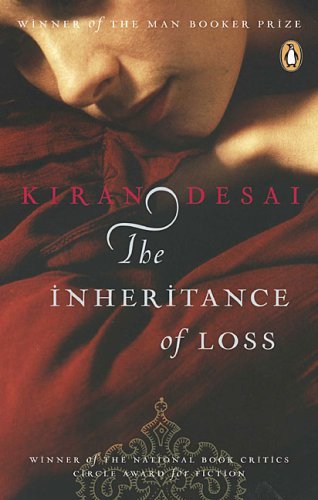Kiran Desai’s novel 'The Inheritance of Loss' creates an epic view of the generation to generation losses that affect many Indians — land disputes within their vast country, the humiliation of British rule, the struggle of emigrants to find a better life elsewhere, the unfairness of the caste system.
Sai, an orphaned teenager, has come to live in the household of her grandfather, a retired judge who was educated in England. His old homestead, a small house set in an overgrown rain forest near the northeast Himalayas, comes under attack from Ghorka armed youth seeking to reclaim the Nepali land for their cause. Sai’s most immediate concern, though, is what she perceives as the waning interest of her math tutor, Gyan.
Two aging ladies, one widowed, her sister a spinster, live nearby. Like their neighbor the judge, they cling to the English ways — tea in the afternoon, the same marmalade preferred by the queen, help to wait on them, not white, of course, but Indians. Already these Indian anglophiles live in reduced circumstances — undependable heat and electricity, no water in the toilets, scarce food supplies, deserting help, strikes that bring everyday living to a halt, shuttered shops and roadblocks.
The judge’s cook has seen his only son, Beju, emigrate to New York City, where he finds job after job in lowly restaurants, while living with other illegals in substandard niches of apartment houses. Many emigres had been promised jobs and housing but find themselves living 12 to a studio apartment — if they are lucky. Back in Nepal, the judge’s cook lives for the arrival of a letter from his son.
Desai’s writing is rich, beautiful prose — this novel won the Booker prize in 1906. Her descriptions are often like miniature snapshots — revealing segments only a paragraph or two in length, but always on target for what she is describing. How the judge as a young man, aboard ship bound for university in England, throws overboard the fetid lunch his mother had packed, shamed to be revealed as poor. How in Cambridge he had to ring the doorbells of twenty-two homes before one crotchety landlady would accept him. Being dark-skinned in a city of whites.
This is a fascinating novel and a great read as we discover how the lives of various characters, many seen both in their youth and in the present, unfold. The author was born in India and now lives in the US. She has a great talent for creating characters and making the reader care about what happens to them.









